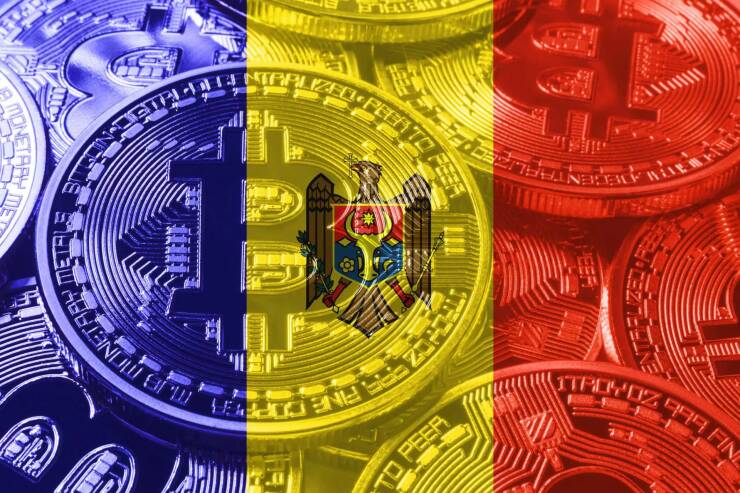Bitcoin trading has been growing in Moldova since its inception in 2009. The country has a population of 3.5 million people and is located in Eastern Europe. Bitcoin trading first began to take off in 2013, when the value of Bitcoin rose from $100 to over $1,000. This caused a surge in interest in cryptocurrency, and many people began buying and selling Bitcoin. Explore Quantum AI for further information.
The number of Bitcoin users in Moldova has grown rapidly since then. There are now over 30,000 active Bitcoin users in the country. The majority of these users are men aged 25-34.
Interest in Bitcoin trading is also growing among the general population. A recent survey found that 8% of Moldovans have heard of Bitcoin, and 4% own or have owned the cryptocurrency.
The government of Moldova has taken a hands-off approach to the regulation of cryptocurrencies so far. However, the National Bank of Moldova has issued a warning to investors about the risks associated with investing in digital currencies.
Despite the warnings from the central bank, Bitcoin trading continues to grow in Moldova. The country has a number of Bitcoin exchanges, and there is also a growing number of businesses that accept Bitcoin as payment.
The future of Bitcoin in Moldova looks bright. Cryptocurrency is becoming more well-known and accepted, and the government appears to be taking a hands-off approach to regulation. With its growing popularity, it is likely that Bitcoin will continue to thrive in Moldova.
Role of Bitcoin Trading in Moldova's Economy
Moldova is a landlocked country in Eastern Europe, bordered by Romania to the west and Ukraine to the north, east, and south. The capital city is Chișinău.
Moldova's economy is one of the least developed in Europe and its main industries are agriculture and food processing. However, the country has been making strides in recent years to diversify its economy and attract foreign investment.
One of the most promising sectors for Moldova's future economic growth is the cryptocurrency industry. Cryptocurrency trading has already taken off in Moldova and is quickly becoming one of the country's most important financial activities.
The popularity of cryptocurrency trading in Moldova is due to a number of factors. First, the country's fiat currency, the Moldovan leu, is not very stable. This makes cryptocurrencies an attractive investment for Moldovans looking to preserve their wealth.
Second, Moldova is located in a region with high political and economic risk. This has made many Moldovans skeptical of traditional financial institutions and investment opportunities. Cryptocurrencies offer a way to invest without having to put faith in any particular government or bank.
Third, Moldova has a young population that is comfortable with new technology. This means that there is already a large pool of potential investors in the country.
Fourth, the Moldovan government has been supportive of the cryptocurrency industry. The government has created a favorable regulatory environment for cryptocurrency companies and has even been working on plans to launch its own national cryptocurrency.
The Moldovan government's support for the cryptocurrency industry is a smart move. The country has the potential to become a major hub for cryptocurrency trading and investment. This would bring much-needed foreign investment and economic growth to Moldova.
Cryptocurrency trading is still in its early stages in Moldova. However, the country has all the ingredients necessary to become a leading player in the industry. With the right policies and infrastructure in place, Moldova could soon be one of the most important countries in the global cryptocurrency market.
Future of Bitcoin Trading in Moldova
Moldova is a landlocked country in Eastern Europe, bordered by Romania to the west and Ukraine to the north, east, and south. The capital city is Chișinău. Moldova has a population of about 3.5 million people.
The history of Moldova can be traced back to the 13th century when it was part of the Principality of Moldavia. In 1812, it became part of the Russian Empire. Following the Russian Revolution of 1917, it became part of the Soviet Union. In 1991, it gained independence as the Republic of Moldova.
Since its independence, Moldova has been plagued by political instability and economic hardship. In 2014, it was the poorest country in Europe with a GDP per capita of just $2,289.
The economic situation has improved somewhat in recent years, but Moldova still faces challenges. One of the biggest is its dependence on Russia. More than 60% of Moldova's energy supplies come from Russia, and about 30% of its exports go to Russia. This makes Moldova vulnerable to Russian pressure and manipulation.
In recent years, there have been increasing calls for Moldova to move closer to the European Union and away from Russia. In 2014, a group of pro-EU politicians launched a campaign to "reunite" Moldova with Romania. This idea has gained some traction, but it remains highly controversial.


